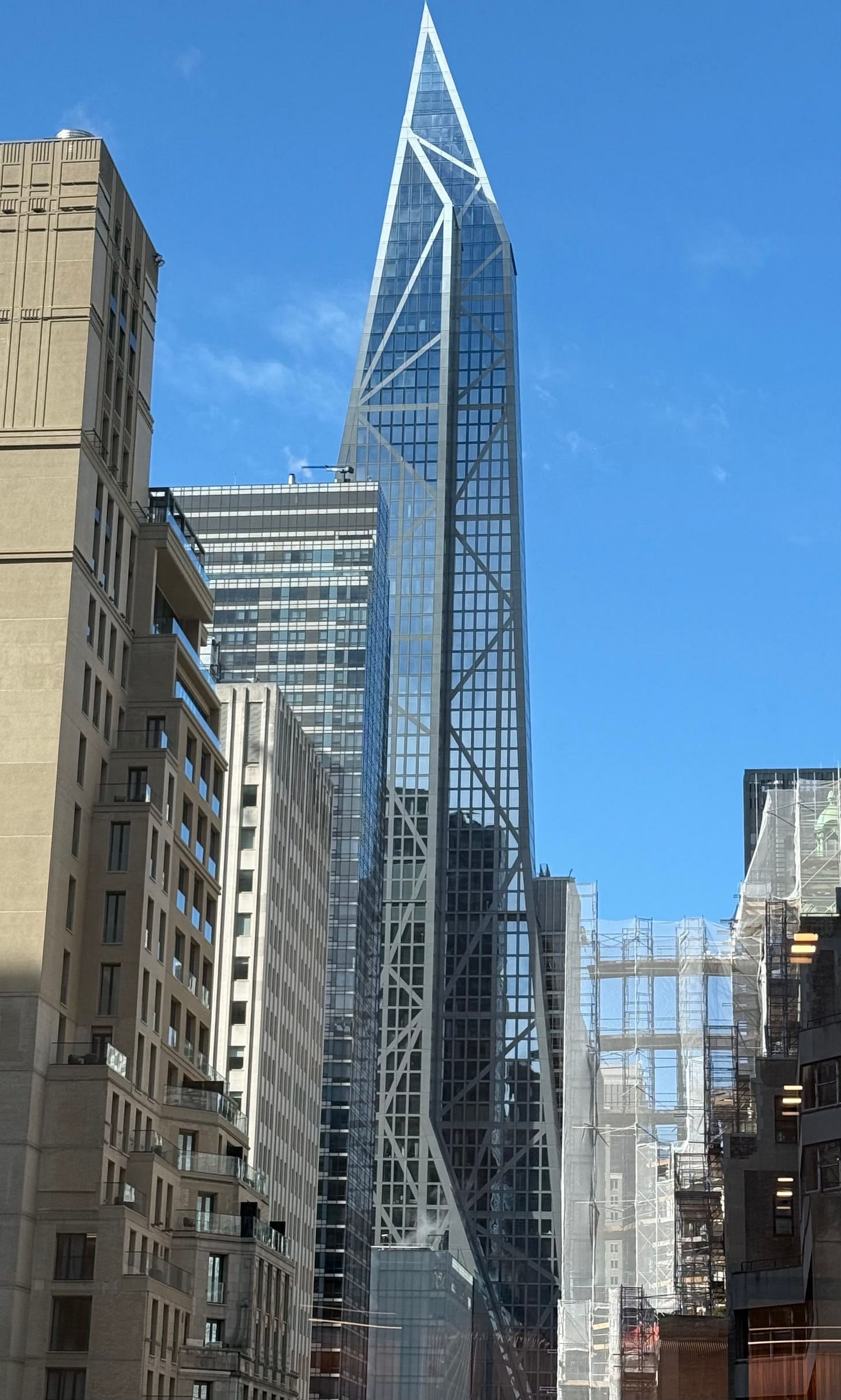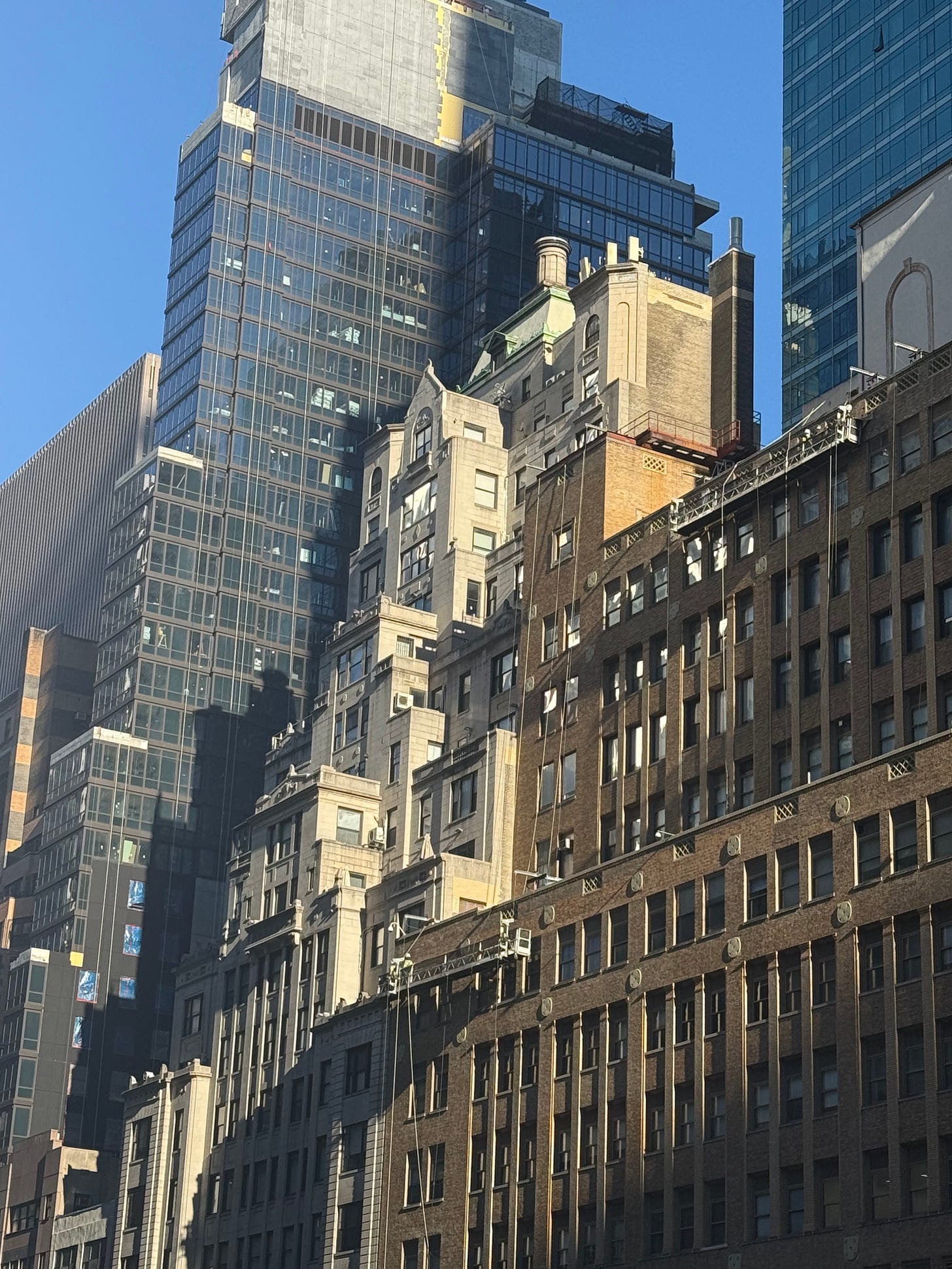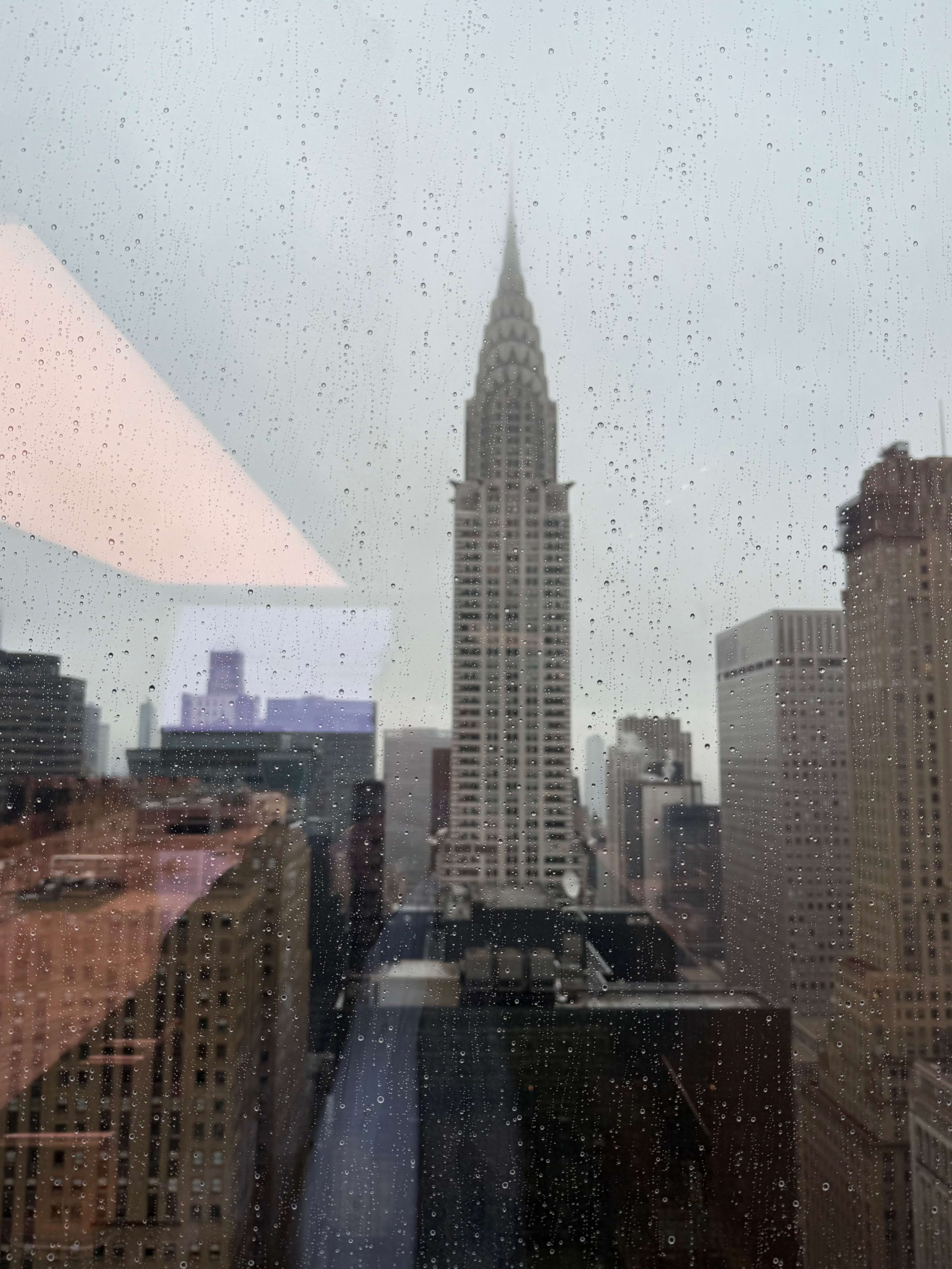The Wetness of Magic
Notes on Enchantment Part One

Greetings, fellow inhabitants,
Perhaps you would enjoy a break from the news?
I have been thinking about enchantment. By “enchantment,” I mean experiencing our world, even this world, even our times, as magic. Wondrous.
Magic is not necessarily good, or moral, or beautiful, though it might be. I’m not talking about Disney. What I am talking about is a sense of meanings, significances, connections, truths, that often begin in but extend beyond our ability to articulate, certainly to articulate without both contradiction and incompleteness, and therefore beyond our rationality.
I find such magic all the time. These images, from the last few weeks, are just recent examples. It’s tempting to search out photographs, formally sound and obviously magical, but part of my point is that magic is commonplace if you know how to see, how to feel. So, these are recent images. As always, the images are much better on Substack (as opposed to your email) and on a real screen (as opposed to your phone).

Weber famously said that the “fate of our times” is “the disenchantment of the world.” This is usually understood as an expression of sadness about historically inevitable rationalization, bureaucratization, science, modernization in general.
And yet “fate of our times” is itself a rather dramatic, mystical thing to say, no? And then there is “disenchantment,” in German Entzauberung. Draining the magic out, a vital fluid flowing from a wound.
If magic is a liquid, I mean feeling wet.
[Breezy erudition redacted.]
One might say that magic must be intentional, must accomplish something. Indeed, and we see incantation, cursing, blessing, all the time. Things are said, peoples come together, build cathedrals of one or another sort, entire cities, trade their fictions, go to war, all under spells. And when times change, whether for a people or an individual, sorrows and triumphs, it feels like waking up, and what was recently real now seems only a dream. A sure sign that the dream has changed.

Seattle, early evening, uncomfortable flight. The airport is dingy, with low ceilings, and under some sort of construction, though it is hard to see progress or even design. Why is it so dark? I’ve never seen such a shadowy airport. I’m locked in a Le Carre novel, in a dreary land, trying to meet somebody somewhere in order to do something. It takes me a while to find the taxi queue, which is hidden in a parking deck across the road. On the heels of a very hard week, recovering, and coming from New York, my body feels the lateness of my hour. And it’s drizzling, of course.
The cab driver puts on some light jazz. The city glows in the mist. I’m warm, heading to a good dinner, cozy in the dark back. The music is nice, with the rain and the light, which I tell the driver. He made the mix, he says. Everyone loves it. I will give it to you. He was born in Ethiopia, and came to Seattle via Ohio. We talk about D.C., where there are many Ethiopians. And when we arrive, he hands me the CD. I give him $10 dollars, anyway – gifts should be reciprocated. We wish each other good night; I turn into my historic hotel; he drives off.
My students, some not as old as some of my children, want. Their youthful ambitions are welcome – I worry more about lack of desire. Old folks have always relied on youthful desire of one or another sort. Lusty kids breed, hungry youth can be coached, young minds fostered.
“Can be” also means “maybe not.” My students’ desires may or may not be fulfilled. They are in their twenties, a few later, and their problems are existential: a good job is important, but stands for a spouse, a family, the ability to support others, a sense that it all means something, that they mean something. There is pathos here. I feel protective, but what can I say, much less do?
Nobody told me teaching would become so emotional. It wasn’t, or not so much, when I started, young and ambitious. Nobody said that here, as elsewhere, I would be relatively successful yet remain relatively powerless, would not have the agency that I youthfully supposed would come to me by right, due to my undoubted merit. Right. Turning the knife, I remember my own teachers, and now am capable of feeling for them. I see that they did what they could, and in my turn, so do I. But the honor has arrived after the humbling. Abrazos, hugs all round, I say.
I know all this sounds a little mystical, and it is, for those who believe they stand on solid ground. Bless your sweet heart. I once wrote some modestly scholarly things on the magic entailed in contract law. The basic idea isn’t mine. At least in the North Atlantic, for a while it was genuinely believed that society could be constructed and operated through the expert manipulation of facts, understood to be solid and even inhuman (technocracy, the end of ideology, usw.). Why this was a good thing, well, maybe better than strife, was never very clear. At any rate, technocracy was a delusion widely held in those fat and happy days, at least by my class of folks. Fools, mostly, dreamers who did not know they were dreaming. But most people are not lucid dreamers. Besides, conflict, and so perspective, had been exported to the periphery, and things in the Capital could be portrayed as calm, sensible, even rational. Future historians will wonder, like we wonder at the Civil War or the Italian Renaissance. How could there have been such times?

Yesterday, late afternoon into early evening. I’ve got a chicken on the grill, spatchcocked, spiced, basically French, going slow. I’m trying to write letters, a few important. Drinking high test beer. A hawk is crying, repeatedly, moving around in the tangled wood beyond the backyard fence. I keep looking, but can't see him. If experience is any guide, it’s a male Cooper’s hawk, an accipiter, built for flying through trees rather than soaring. He wants to establish a territory, suitable for mating, nesting. It’s happened before, and I hope it happens again. You go, young man. A Cooper’s hawk in flight is a thing of rare beauty, though there is a pang when one has killed a cardinal, the splash of red hanging low. Life.
Perhaps the prettiest of all skyscrapers. Photographed from a conference room in One Vanderbilt (2020), named afterCornelius Vanderbilt (1794-1877). The view is over Grand Central Terminal (1913, on site of older stations). So we have centuries of capitalism, aspirations, vanities, sins, security of various sorts, and even generosities, and astonishing amounts of cumulative collective work. A synechdoche for a civilization. Perhaps one has to have been a corporate lawyer or the like, but the raindrops and the reflections are as important to me as the subject. I also really like the masses, though it’s weird to take a reflection of a light to balance a building. I’m kind of in love with this image, as you can tell. Mostly luck.
Photography, which is usually understood in mechanical terms (at least vis-a-vis painting) can compress and suggest. Images thereby escape rationality.
I am not sure what means, Max, but we should think about it some more.
Safe travels.
— David A. Westbrook
P.S. Social Thought from the Ruins: Quixote’s Dinner Party should be coming out soon. Watch this space.
P.P.S. A thousand thanks to my paid subscribers. If you don’t feel like or are unable to pay, would you consider forwarding, restacking, or liking this text? Thanks/cheers.





David, this was quietly magnificent. I love the way you let enchantment slip through weather, architecture, memory, and stray conversations; never pinned down, but always felt. The metaphor of magic as “wetness,” something drained by rationality, really stayed with me. And that Seattle airport passage? Pure cinema. As a manic shutterbug, your reflections on photography as projection and suggestion, not merely documentation, hit home. It’s a way of thinking I don’t see articulated often, and you nailed it.
C. Northcote Parkinson, in one of his laws, says that an organization is past its prime when it moves into fancy, purpose built headquarters. The great days of an organization are in rented quarters with Army surplus file cabinets and secondhand equipment. Walter Chrysler’s magnificent building was built when his company was past its peak. But he left us that building. So it all worked out. His memoir is one of the best books about the heroic age of business and free enterprise, and that heroic age is replicated every time a new technology is in its infancy. I purposely did not use the word capitalism, which is a Marxist term, which I object to generally. But since it means rule by the people with capital, it really fails to describe the innovative era in any industry, or in any economy. Those industries are hungry for capital, they aren’t the masters of capital, not yet. The scenes where Chrysler is trying to generate the capital for his new company are terrific. No spoilers, it’s worth getting the book! Realizing that your teachers did their best is the sign of maturity, if not nascent elderhood. I feel the same way, I feel gratitude toward them, even the ones who, at the time, I didn’t think were fair to me. They had a lot on their minds. They had lots of students to deal with, they weren’t there to hold my hand, they were there to give me what they had, in the time they had available, by the means they knew how to employ. It’s almost unimaginable, how naïve an adolescent or a young adult is, and no amount of words from an older person can change that. You can tell them how things are, but very few of them can process it, they have to live it, and learn a lot of things the hard way. We were that way, the young people of today are that way, and the young people of the times to come, long after we are gone and forgotten, will still be the same. Good post, great photos.